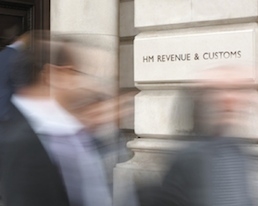The dividend tax will be increased over the next few years until it starts to be more expensive to operate a small business through a company, a tax expert has predicted.
Andrew Hubbard, tax partner at Baker Tilley, believes further changes are just around the corner following the reforms introduced in the summer Budget.
Further details on the changes were released by HMRC earlier this month.
The Treasury said in July that the dividend tax credit would be replaced with a new tax-free allowance of £5,000 of dividend income for all taxpayers. It takes effect from April 2016.
The Chancellor said the move would “simplify the taxation of dividends” but Financial Planners said smaller firms would have to review how they pay directors as a result.
{desktop}{/desktop}{mobile}{/mobile}
Mr Hubbard said there would be “unpleasant knock-on effects – especially for high-earners” caused by these changes.
He said: “The Chancellor clearly wants to remove the tax advantages currently enjoyed by those operating their small businesses through a company – these changes won’t completely remove those advantages, but I would expect that over the next few years the dividend tax will be increased until it starts to be more expensive to operate through a company.”
He said the dividend changes will have an “adverse effect on those family companies who have hitherto extracted profits by way of dividends”.
He said: “Next year they will almost certainly face a tax hike. This is no accident.”
The Government has set the dividend tax rates at 7.5% for basic rate taxpayers, 32.5% for higher rate taxpayers and 38.1% for additional rate taxpayers but there will be no tax credit. There will be an increase of 7.5% where dividend income exceeds £5,000.
Previously, individuals in receipt of dividends benefited from a 10% tax credit which for basic rate tax payers meant they could enjoy their dividend tax free. Higher rate tax payers paid an effective 25% tax rate.
Officials at HMRC said in an update published this month that the £5,000 tax-free allowance would still be taken into account when assessing someone's overall income for tax purposes.
The report said: “The dividend allowance will not reduce your total income for tax purposes. However, it will mean that you don’t have any tax to pay on the first £5,000 of dividend income you receive.
“Dividends within your allowance will still count towards your basic or higher rate bands, and may therefore affect the rate of tax that you pay on dividends you receive in excess of the £5,000.”

